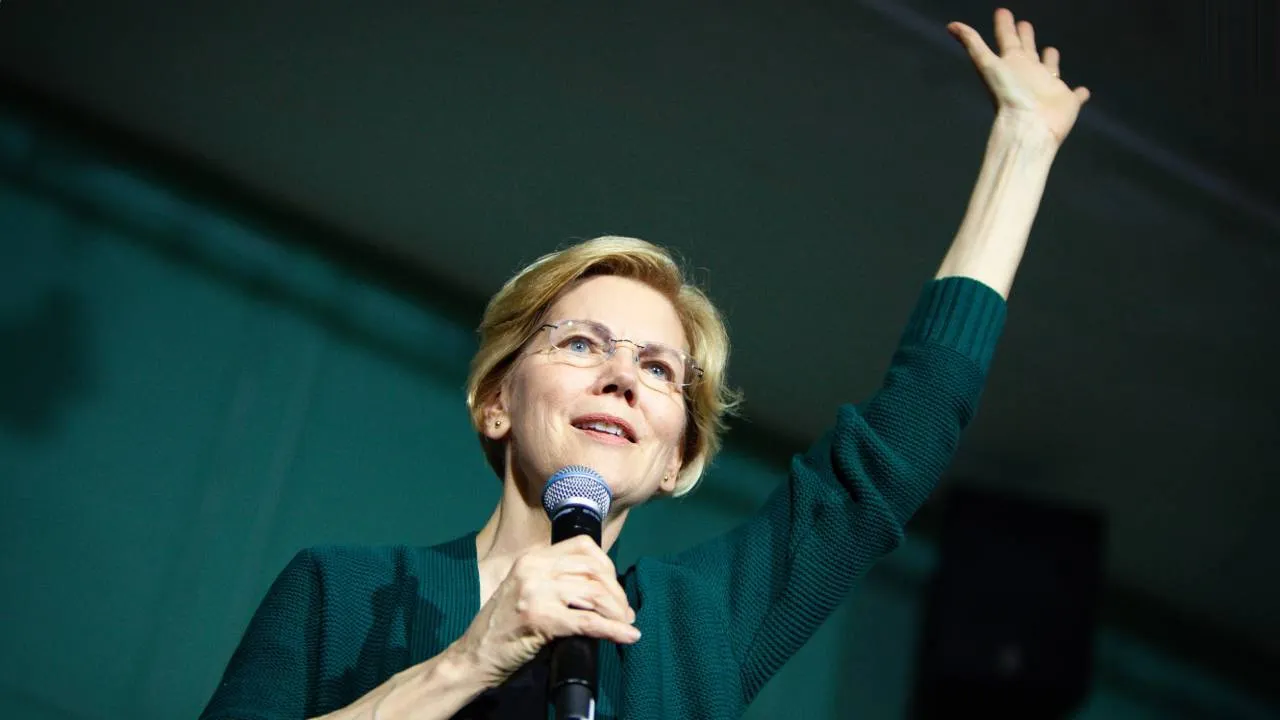Senator Elizabeth Warren (D-MA) secured re-election to the U.S. Senate on Tuesday evening, defeating Republican opponent John Deaton in a race widely seen as a referendum on crypto regulation and financial reform, according to major news outlets.
Warren, who serves on both the Senate Finance and Banking committees, secured her third term after heated debates over digital asset oversight.
Warren has secured 74%, or 115,000 votes, as of 8:55 pm ET— a massive lead on Deaton’s 26%, or 41,600 votes, according to the latest results from the Associated Press.
"I’m blessed to have escaped the poverty of my childhood and achieved the American Dream, Deaton told Decrypt. "When you come from that kind of life, when you get to run against one of the most powerful and influential people in Washington and hold your own on the debate stage - that only happens in America."
He continued: "If that doesn’t make you proud of America, I don’t know what will. I hope the next president, whoever he or she may be, moves this country forward and helps keep that American Dream alive. America’s number one enemy is this internal division, and I’m proud to have set an example for my children: always tell the truth, stand on your integrity, and treat people with respect, even if you disagree with them.”
The race drew significant attention from the crypto industry, with Deaton receiving substantial industry support, including a $1 million donation to his super PAC from Ripple Labs.
During their October debate, Warren repeatedly highlighted Deaton's crypto connections, claiming that 90% of his campaign funding came from the industry and that 80% of his personal worth was tied to digital assets, despite these being properly documented and disclosed.
Deaton, known for his advocacy in the Ripple v. SEC lawsuit, positioned himself as a champion for financial inclusion and a “common sense” alternative to Warren, sharing personal stories about how crypto could benefit unbanked Americans.
He criticized Warren's focus on crypto regulation, suggesting she should instead prioritize inflation and border security concerns.
Warren's victory signals continued pressure for stricter crypto policy as she maintains her position on the Senate Banking Committee, which oversees both the SEC and CFTC.
The senator has been a driving force behind a series of legislative moves to apply Bank Secrecy Act requirements to miners, validators, and wallet providers.
During the campaign, Warren emphasized her stance that crypto should follow traditional banking regulations.
"I just want crypto to follow the same rules as every bank, stockbroker, and credit union," Warren said, as Deaton countered that her proposed legislation would effectively ban Bitcoin self-custody and allow banks to retain custody services.
The election outcome could impact pending crypto legislation, including Warren's anti-money laundering bill.
Despite crypto industry pushback, Warren has consistently characterized crypto in a negative light, going so far as to say that crypto is a "payment of choice" for child abuse material and other illicit activity.
Edited by Sebastian Sinclair
Editors note: This story incorrectly stated Warren had secured a fourth term. The body and headline have been updated accordingly.

